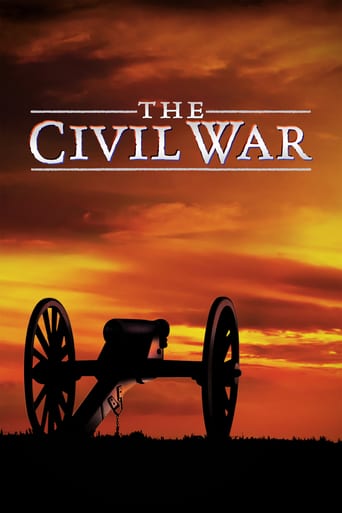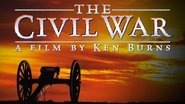Dr Jacques COULARDEAU
This film, or series since it has nine episodes, is crucial for people, particularly young people and people outside the USA, to understand the nature of the Union behind the USA and why this Civil War was the real corner stone of US history. We always refer to the Declaration of Independence and the US Constitution but we forget a simple fact: the USA is a centralized country that has mapped the various political fields between the federal government and the various states. The US Constitution itself clearly states that all competences or fields of political action that are not attributed to the federal administration can only be dealt with at state level. Recent US Supreme Court cases have shown that this principle is basic. For example the US Supreme court intervened in the case of gay rights because the 14th Amendment to the US Constitution was negated by some legislative rulings in some states, particularly cases that crossed the border between several states. And it is the reassertion of the 14th amendment stating all Americans are equal in front of all public agencies or services and that they all deserve equal protection against the negation of their equal rights that enabled the sweeping generalization of the opening of marriage rights to any couple whatsoever since it could only be solved at state level since it is not a competence of the federal state, both the government and Congress. That's why the Defense of Marriage Act was repealed by the Supreme Court since it was beyond the competence of Congress.This being said we can now understand why secession could not take place and could not be accepted on the basis of the US Constitution. If a state wants to get out of the Union it has to negotiate it with the Federal State, both government and Congress. It cannot secede on its own initiative and under its own authority. What is surprising is that the war started on that argument in the north: self-declared secession is illegal and anti-constitutional. So it has to be fought against including with military might. And yet it could not be won on that single argument because it was a lie. What was at stake was the principle of the equality of all Americans including the Blacks. For the south the Blacks were slaves and as such not Americans and certainly not citizens. So for southerners they could not be considered as equal because they were not human. For northerners the Blacks were human beings and had to be considered as equal because they were created by God the same way as the Whites. Note the reference to God and creation in the declaration of Independence is bothering since it refers to one particular ideology, religion, that is always under the control of churches and both democracy and hierarchical organization in these churches can easily make the racial problem a religious problem. We must remember that in the south Blacks were excluded from churches and were even excluded from religion. That was the main difference between English colonization and French or Spanish colonization. Actually we could consider the film is timid about this religious question. It sure considers the racial side of the war and the crucial emancipation of Black slaves, but it does not really consider the fact for instance that Louisiana went back into the Union rather early in the war because of the French tradition that had left behind a vast community of free Blacks and mulattos and a religious tradition with the Catholic Church that integrated the slaves into their religious rites and practices from the very start. Code Noir was a colonial tool for sure but all religious rights were asserted and recognized by it, including the obligation for slaves to be married and the obligation for slave owners to provide every week a day for matrimonial duties if the two members of the married couple were not on the same plantation. And the vote of Louisiana was crucial to ratify the 13th Amendment to the US Constitution and the vote of this Amendment with a one vote majority (two third majority mind you) is not even mentioned in any detail.In fact the film insists too much on the opposition in the north against this racial development in the war which left the 55% majority of Lincoln in the 1864 election unexplained. It is quite obvious that the racial dimension was crucial and positive in the north. But that is not the first time the racial question is under-estimated. Even by 1990 when this film came out. But since then many examples can be quoted of this persistent under-estimation of the crucial character of the racial question; In 2012 for example practically all opinion polls announced Obama as defeated because they considered the Latinos as white, which they are, but they forgot that these white Latinos were not going to vote the same way as European whites, and they did not vote the same way as European whites so providing a majority to Obama. On another side the film insists a lot on the gory character of this war. It was absolutely horrible but that was the fate of all wars in the 19th century. Napoleon's wars were particularly bloody too. Dying of sickness or starvation as fighting soldiers as well as prisoners on both sides was common place, and too often both sides forgot to take prisoners or to collect the wounded from the battle field after battles. At times too the film insists too much on "facts" or "events" and does not see and mention the historical perspective. It is too easy to just mention the industrial development of the north and the blockade against the south but that was not the only dimension, or it was too circumstantial. [...]Dr Jacques COULARDEAU
Joe Paris
Through this episode of Ken Burns' series The Civil War, I was afforded a glimpse at what seems to be a splendid documentary of the war between the states. Burns first focuses on analyzing the lives and mannerisms of the war's duo of prominent opposing generals, U.S. Grant and Robert E. Lee. He does this to a very pleasant extent of thoroughness, and qualifies both generals as outstanding and respectable men. He then went on to examine the stalemate that these two engaged in while trying to outflank each other for control of the strategically paramount location of the Confederate Capitol, Richmond. While doing this, he spends time to respect the horrendous conditions of battle during the war between the states, specifically at the battle of Chancellorsville. He further analyzes the atrocious effects of the war by discussing the conditions in which the wounded were held, many to their mortal termination. This is a very informative and engaging documentary.
drjgardner
It's been 25 years since the first showing of Ken Burns' "The Civil War" I recall at the time thinking that it was truly revolutionary and wonderful and I expected it would set the tone for the next decade in terms of documentaries. Viewed now 25 years later, the series is still mind boggling. The detail is amazing. Pictures, songs, and letters blend into an incredible program that despite the length keeps you transfixed on the screen. When originally broadcast you had to wait for each episode. Now, thanks to modern technology, you can record and view them all at once, or in my case, over 2 days. In many senses this is even more powerful than viewed one episode at a time.Though my admiration for the series has only increased upon viewing it again, I am disappointed that there has been nothing to match it in the years since. Ken Burns has gone on to produce several series, most notably "The Roosevelts" (2014) and "Baseball" (1994), but in my mind there has been nothing equal to "The Civil War". Moreover, other notable documentary makers (e.g., Michael Moore, Werner Herzog, Errol Morris) have not done anything along these same lines.If you haven't seen "The Civil War", you should see it. If you've seen it, see it again. It is not merely a documentary, but it is a lesson in how we became whom we are today.
Spondonman
This seminal Ken Burns 9 part TV series tells you almost everything you should ever need to know about the American Civil War. It's as good in its own way as the BBC's Great War from the '60's and Thames' World At War from the '70's were in theirs. Those 2 had plenty of still pictures and movie reels whereas of course the Civil War had to rely on stills – and lots of 'em. At one point we're even informed over a million photographs were taken during the course of the war, you feel by the end you've seen a good proportion of them too. While the images may be occasionally hard to watch and the barbarity of the war hard to stomach the oft-reprised background music and pleasant burr of the narration is very easy on the ear. Every episode is presented logically and with battle descriptions instead of re-enactments linked by informative narration, maybe with a trifle romanticised and flowery language. By 1865 I'm astonished by the relentless quality and exhausted by the powerful message.The main theme of past war documentaries are often the same though – the relative pointlessness and bestiality of war and the constant heroism bafflingly displayed by all manner of people. Another theme is how when it suits them our Betters the Generals and politicians are horrified and chastened by the apparently endless and senseless waste of ordinary people's lives – the British and American brasshats and bigwigs were during WW1 and 2 and cried oceans of crocodile tears, but if necessary will be ready to shed them again in their present or next war. The American Civil War had far more of an ideal to fight for: the abolition or retention of Negro slavery in the South, even though it wasn't the declared object for the North's rulers until 1863. The 2 parts of the whole were rival capitalist economies going in 2 different directions, slavery was not the issue in 1861 but was morally useful in helping fighting the good fight. Although white riots ensued in the North after it had become a war of black emancipation. Lincoln seemed more concerned about winning his 2nd term as President in 1864 than the casualty lists. And after the War was won and lost it eventually paved (and is still paving) the way for downtrodden African Americans to live on the same footing as downtrodden American whites – as wage slaves dependent on the capitalists for their daily bread. At least 600,000 men, women and children of all races died in those 4 years fighting for or defending their masters. The history of class society through the ages has shown that the direct ownership of slaves can be more expensive for the rulers to maintain than the workers having to fend for themselves at the mercy of market forces. The world progressed but sadly slavery still has a long way to run; at least it's now simplified and colourless.Lincoln has certainly gone down in History, in its own much smaller way this TV documentary has too. Yes, no matter what your personal prejudices are or which side you're on this is a vast and useful treasure house of information, to dip into every few years and bolster up your opinions!




